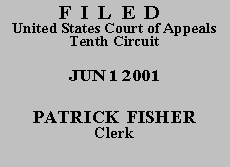

| RONALD MORELLO,
Petitioner-Appellant, v. STATE OF UTAH, Respondent-Appellee. |
|
Ronald Morello seeks to appeal from the district court's order denying his petition for writ of habeas corpus on the basis it was barred by the statute of limitations. The matter is before us on his application for a certificate of appealability pursuant to 28 U.S.C. § 2253(c). To be entitled to a COA on the issue of whether his petition was timely, Morello must show both that it is debatable whether the district court was correct in this procedural ruling and that it is debatable whether the petition states a valid claim of the denial of a constitutional right. Slack v. McDaniel, 529 U.S. 473, 484 (2000).
In his petition, Morello challenges (1) the validity of his conviction for aggravated robbery in a Utah state court and (2) the decision of the Utah Board of Pardons to set his parole date in the year 2008. Morello's challenge to his conviction is brought pursuant to 28 U.S.C. § 2254. His challenge to the parole decision is best viewed as a challenge to the execution of his sentence pursuant to § 2241. See Montez v. McKinna, 208 F.3d 862, 865 (10th Cir. 2000); United States v. Furman, 112 F.3d 435, 438 (10th Cir. 1997). The limitations period provided by § 2244(d)(1) applies to both types of challenges. See Owens v. Boyd, 235 F.3d 356, 360 (7th Cir. 2000). Section 2244(d)(1) provides a one-year limitations period that runs from the date a conviction becomes final or the factual predicate of the claim could have been discovered, unless those dates preceded enactment of the Antiterrorism and Effective Death Penalty Act of 1996. In that situation, the one-year period runs from April 24, 1996. See Hoggro v. Boone, 150 F.3d 1223, 1225 (10th Cir. 1998). Section 2244(d)(2) also provides a tolling provision applicable to post-conviction review.
Morello's complex conviction and incarceration history is detailed in the magistrate judge's report and recommendation, which was adopted by the district court. For present purposes, we need only note that the dates the one-year limitations period began to run were December 10, 1996, for the challenge to his conviction and April 24, 1996, for the challenge to the parole decision. Morello filed the instant habeas petition on March 7, 2000. Even tolling the limitation period for the four months an earlier federal habeas petition was pending (but which was eventually dismissed on exhaustion grounds), see Petrick v. Martin, 236 F.3d 624, 627 (10th Cir. 2001), Morello filed the instant petition long after the limitations period expired.
Morello presents two arguments why his petition should not be considered time-barred. First, he contends there are additional state post-conviction remedies available and that his petition should be dismissed without prejudice so he can pursue these remedies. We do not decide here whether he can pursue these state remedies. But his pursuit of these remedies cannot toll the federal limitations period because that period has already expired, and it cannot be resurrected.
He also contends he was unaware of the Utah Court of Appeals ruling that started the clock running on December 10, 1996, because he had been transferred to a prison in New York and did not receive notice of the ruling. He thus seeks equitable tolling of the limitations period, but this form of relief "is only available when an inmate diligently pursues his claims and demonstrates that the failure to timely file was caused by extraordinary circumstances beyond his control." Marsh v. Soares, 223 F.3d 1217, 1220 (10th Cir. 2000), cert. denied, 121 S. Ct. 1195 (2001). Morello did not file his first federal habeas until two-and-a-half years after the state court's ruling, and the ruling was sent to his counsel, in addition to his Utah prison address. Under these circumstances, we cannot say that he diligently pursued his claims and is entitled to equitable relief.
We thus agree with the district court that Morello's petition is time-barred. His request for a COA is DENIED, and the appeal is DISMISSED. His application to proceed in forma pauperis is GRANTED. The mandate shall issue forthwith.
Entered for the Court
Circuit Judge
*. This order and judgment is not binding precedent, except under the doctrines of law of the case, res judicata, and collateral estoppel. The court generally disfavors the citation of orders and judgments; nevertheless, an order and judgment may be cited under the terms and conditions of 10th Cir. R. 36.3.